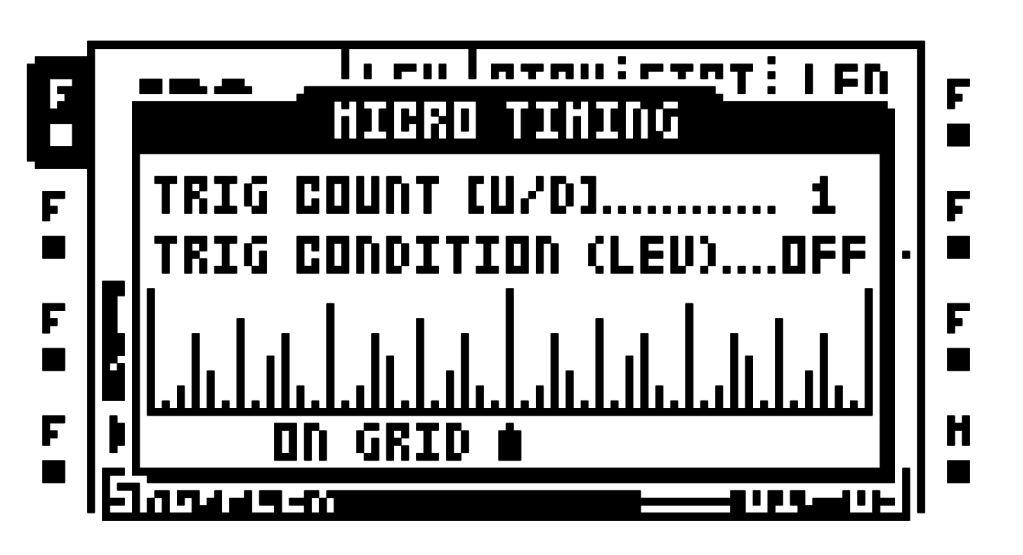Elektron have shipped their Octatrack OS 1.30B. Sequencer trig conditions, powerful rules that determine how sequences play, are here. And they’re wicked.
Normally, the way step sequencers work is, each step triggers a note, if a note is there, or doesn’t if a note isn’t there. Sounds obvious. If you watch a clarinet player reading a music score, they look at the page, play clarinet notes where there are clarinet notes, and play rests where there are rests.
But wait: a sequence is just a set of rules. What if those rules had conditions?
Lots of step sequencers allow chance parameters. So, if you set the chance to 50%, you get effectively a coin toss each time a step is triggered – and a 50/50 likelihood you’ll get a note instead of a rest.
Octatrack’s new OS, for both the MKI and MKII hardware, keeps running with this idea. You get trigger conditions for everything.
It starts with that conventional random probability condition (called “%”).
“A:B” sets the trigger to true every ‘a’ number of pattern iterations (number of loops), and then every ‘b’ iterations. So, let’s say you want a note to trigger every few loops, but not every single loop. Set it to N:8, and it’ll only play every eighth loop.
You can toggle (or latch) a FILL mode, too – then have that FILL mode trigger variations of a pattern.
You can set rules based on neighboring tracks. (NEI)
You can trigger something only once, then never again (1ST) – for one-shots, or something that happens only the first time a pattern plays.
You can set rules that are true/false base on a previous condition on the same track, too – if…then style. (PRE)
It’s crazy stuff – a whole generative world for patterns. And it’s another way to cure the tyranny of patterns that play OVER AND OVER AGAIN IN EXACTLY THE SAME WAY AND MAKE YOU FEEL DUMB AND BORED. We’re not quite in live coding territory here, but the simplicity of this set of rules is nice, too. It seems a clever way to build up basic song structures on the hardware.
https://www.elektron.se/support/
